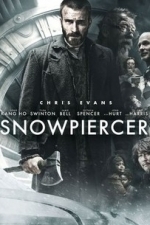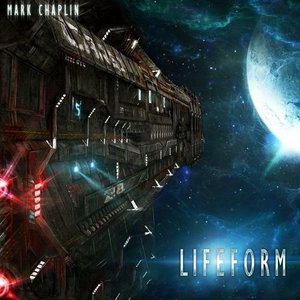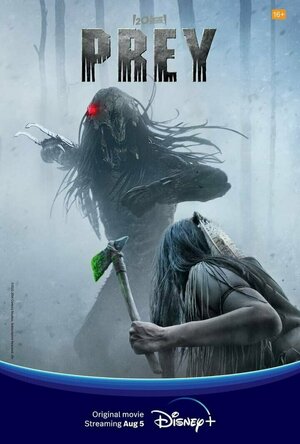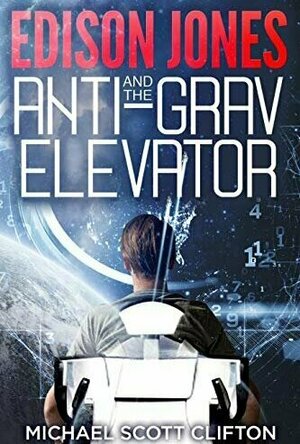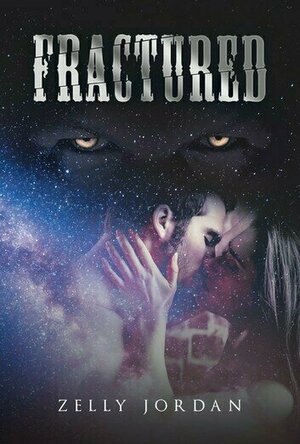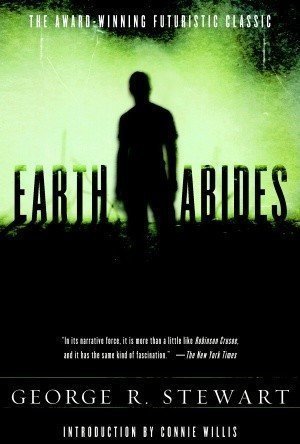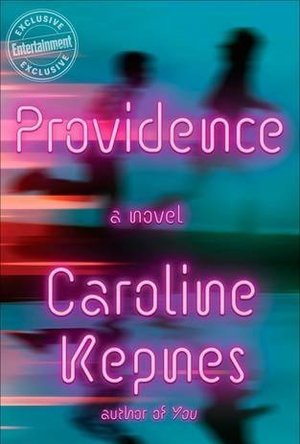Gareth von Kallenbach (980 KP) rated Snowpiercer (2013) in Movies
Aug 6, 2019
This is the film that Chris Evans chose to do in-between filming The Avengers and Captain America: Winter Soldier. In my opinion, he made a great choice. To me, Evans has always been just blah and one-dimensional. While he does not stray too far from how we have seen him act in the past, this film gives him a chance to show some depth and grit of character that we have not truly seen from him. Everyone looks at him as being the leader and you can see why. He embodies that character. I was impressed by his performance.
Along with Evans, Tilda Swinton helps carry this film from basic Sci-Fi ride to better than average film. She is fantastic in this film. She plays Mason, the governance of the train that helps keep things in order. She is the one that comes down from the front of the train and explains how and why the people in the back should keep their place. She steals the show with her presence every time she is on screen and gives a fantastic performance that causes us to both spite her, but also understand she is doing what is best for the train.
Without revealing too much about the story, the pacing of the film is great. It is not in a rush to get you from point A to point B, but rather takes the time to intertwine character development into story. The first half of the film is the revolt film where we see the dregs of life and the fight for freedom. The second half of the film is the reveal of wonderment where we see how the other side lives. In true Sci-Fi fashion, the story is a social commentary on our current place in society with regards to the richest 1% in the world. The revolt changes to a question of control which in turn changes to a question of true freedom, but at what cost?
I would recommend this film to any Sci-Fi fans or anyone looking for a thoughtful film and change of pace from the big summer blockbuster.
For a more in-depth discussion about the film, be sure to check out our podcast review.
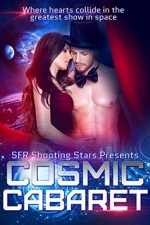
Cosmic Cabaret
Rosalie Redd, Jayne Fury, C.J. Cade, Kat Vancil, Blaire Edens, Diana Rivis, Tessa McFionn, Dena Garson, Selene Grace Silver, Cailin Briste, Athena Grayson , Jenna Lincoln and Kerry Adrienne
Book
Where Hearts Collide in the Greatest Show in Space Join us aboard Blue Star Line’s crown jewel,...
Science_Fiction Romance Anthology
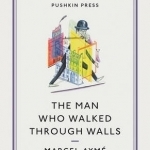
The Man Who Walked Through Walls
Marcel Ayme, Sophie Lewis and Yann Kebbi
Book
A collection of funny and fantastical short stories, Marcel Ayme's The Man Who Walked through Walls...
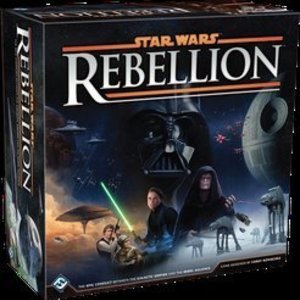
Star Wars: Rebellion
Tabletop Game
Star Wars: Rebellion is a board game of epic conflict between the Galactic Empire and Rebel Alliance...
Boardgames StarwarsGames MiniaturesGames
BankofMarquis (1832 KP) rated Prey (2022) in Movies
Aug 12, 2022
It has taken 35 years for a sequel (in this case, a prequel) to be mentioned in the same stratosphere as the first.
While the other 5 sequels (if you count the Alien vs. Predator cross-over films) delve deeper and harder into the science fiction and macho-action of the first film, the straight-to-streaming prequel PREY (on Hulu and now on Disney+) decided to go in the other direction, it simplified the Predator/Prey dynamic, eschewing deep sci-fi mythology and settled on the “less is more” dictum of storytelling to great affect.
Set in the Midwestern Plains in the 1710’s, PREY follows a group of Comanches as they live their unassuming lifestyle - living off and giving back to the land. A lifestyle that is slowly being encroached upon by foreign entities. At first these “aliens” are terrestrial in nature (the approach of the White Man, in this case, they are in the guise of French Voyageurs), but later, in it takes the form of the extraterrestrial Predator. It’s an interesting juxtaposition of the duo forces outside of what this tribe of Native Americans know - and how they deal with it.
Leading us into the conflict are the main protagonists - the brother/sister combo of Naru (Amber Midthunder, HELL OR HIGHWATER) and her older brother, Taabe (Dakota Beavers, in what is his feature film debut). These 2 - along with their Comanche brethren track and then begin to understand what they are encountering and since they know they are out-gunned, they need to outsmart the Predator.
This could have devolved, quickly, into a gorey, CGI-fest of carnage, but in the careful hands of Director Dan Trachtenberg (10 CLOVERFIELD LANE) and with an interesting screenplay by Trachtenberg and Patrick Aison, this film becomes a thoughtful, intelligence game of wits that is satisfying on both sides.
Midthunder and Beavers are very strong in their roles of the brother and sister Comanches and they are 2 characters that you quickly start rooting for in their battle. These characters are drawn in an interesting, 3-dimensional, way and are a pair that you want to spend these 2 hours of struggle with.
Trachtenberg helps these 2 - and the story - by setting a deliberate pace, as if you the audience are thinking and encountering things along with these 2. There are long bits of thought and talk highlighted by spikes of action that are well choreographed and interesting, but really add to the depths of the characters.
I am as surprised as you are that I encountered an interesting character study in disguise in an action-packed Predator film - but that is just what this is…and very well done to boot.
Letter Grade: A-
8 stars (out of 10) and you can take that to the Bank(ofMarquis)
Heather Cranmer (2721 KP) rated Edison Jones and The ANTI-GRAV Elevator in Books
Apr 2, 2020
Edison Jones is a 12 year old seventh grader. After a car accident (that really wasn't an accident) left him paralyzed from the waist down and killed his parents, he's been living a very sheltered life with his grandpa. Edison isn't like most 12 year olds though. He's highly intelligent and has come up with a way to invent a anti-gravity space elevator. He's just go to prove to NASA that it works. Oh, and he's also being enrolled into the local public junior high school for the first time which also presents problems of its own. Edison will have to prove his space elevator has what it takes while also navigating the new realm of school and friendship if he's going to make his dreams come true.
The plot for Edison Jones and The ANTI-GRAV Elevator definitely was an interesting one for sure. While there are similar books out there, Michael Scott Clifton really made his book stand out. I liked how the main character had a disability which made it harder for him when it came to everything. It's refreshing to see a main character that's different from the mainstream. There is a bunch of science speak and terminology which can be a little overwhelming for the average person, but eventually, you get used to it. Plus, you don't need to know all of the terminology to enjoy this book. Context clues are also available to help make the terminology a bit more understandable. Descriptive scenes abound throughout this novel which makes it very easy to get lost in this book. In fact, many times I forgot where I was because I was so focused on this novel. The anticipation that Clifton sets up for major events throughout Edison Jones and The ANTI-GRAV Elevator is done brilliantly. I was definitely holding my breath and turning the page quickly to find out what would happen next especially when it came to scenes with the Breakstone twins, the robotics competition, the last junior high football game, and the launching of Edison's space elevator! The build up in those scenes was amazing! The ending does leave the possibility of another Edison Jones story being released in the future.
One thing that did irk me quite a bit was the stereotype that all of those who live in mobile homes are trashy. I felt like the author played into that a bit too much during one chapter. Here's one example which can be found at the end of chapter 26 when discussing Markie Franks who is a bully and Hondo's house (Hondo, Edison's friend, comes from a home where his mom chooses her boyfriend over him, and the boyfriend and Hondo don't get along.): "Markie's house surprised Edison. Although more modest than Bree's, it was also a brick home with an immaculate yard and appearance. He wasn't sure what he expected--maybe a mobile home with rusting cars on blocks in the yard--not the tidy home the bully lived in. Hondo...did live in a mobile home complete with a yard full of foot-high weeds. The only light came from the blue flicker of a TV through a grimy window next to the front door. With a grimace, Hondo got out and waved, his shoes pushing a path through the brown weeds and grass." It's stereotypes like this that make those who live in mobile homes easy targets for bullying as well as making those that live in mobile homes feel horrible about their life. It really shouldn't have been discussed like this at all. Not everyone who lives in a mobile home is trailer trash which is what I felt this book was implying.
I did feel like all the characters in Edison Jones and The ANTI-GRAV Elevator where very fleshed out and realistic. Edison is extremely intelligent when it comes to science, but he struggles with fitting in as he's been sheltered his whole life. Even though Edison isn't your average 12 year old when it comes to smarts, it was refreshing to see just how average he was when it came to navigating friendships and romance. I loved reading about Edison's thought process when it came to his crush on Carly as well as his friendship between Bree, Hondo, and Carly. I liked how Edison, for the most part, wouldn't give that bully, Markie Franks, the satisfaction of knowing that he bothered him. I admired Hondo after all he had been through. Throughout most of the book, I was trying to figure out if Hondo was a genuine person or if he would end up double crossing Edison. Bree and Carly were great friends to Edison, and it was obvious how much they admired Edison. I liked how they would stand up for him. The Breakstone Twins were also very interesting. I can't wait to see more of them in future books (if the author chooses to make this a series). I liked how cunning and calculated they both were.
Trigger warnings for Edison Jones and The ANTI-GRAV Elevator include some profanity, name calling including using the word pussy which I didn't like, some stereotyping, some violence, bullying, attempted murder, murder, a mention of drugs (being stoned), some underage smoking, and a mention of beer.
All in all, Edison Jones and The Anti-GRAV Elevator is a fantastic story that straps you in for a very exciting adventure throughout its pages. The plot is fantastic, the characters are diverse, and the action abounds. I would definitely recommend Edison Jones and The ANTI-GRAV Elevator by Michael Scott Clifton to those aged 13+ who seek adventure in their life. This would appeal mostly to those interested in science, but I think everyone who enjoys a solid story would like it.
--
(A special thank you to Lone Star Literary Life for the tour and to Michael Scott Clifton for sending me a paperback of Edison Jones and The ANTI-GRAV Elevator in exchange for an honest and unbiased review.)
Kara Skinner (332 KP) rated Fractured in Books
Dec 13, 2019
Page Count: 198
My rating: 3.5 out of 5 stars
I am many things. A man. A soldier. Trained to kill. Born to hunt. Focused and lethal.
Nothing gets through the stoic control that hides my inner animal, an animal that simmers with rage and power. And that power makes me the perfect assassin. My first task—eliminate the vile head of a science lab responsible for creating and distributing a cruel mutation. Easy. And almost done when suddenly she invades my world.
Charlotte—petite, beautiful, and sexy as hell—a cop who claims a past with me that I don’t remember. At all. Suddenly she’s everywhere, interfering, asking too many questions, endangering herself and my mission, and pushing buttons I didn’t know I had. A dangerous distraction. My beast is captivated but suspicious, torn between wanting to sink teeth into her and wanting to sink teeth into her. My body craves her.
But I don’t remember her. I don’t trust her. And I don’t trust myself around her. Who is she? Is she lying? And do I have enough control to not be blinded by her? To protect my secrets and uncover hers? And who pays the price?
First of all, I’m so, so happy this book was from Kellan’s point of view. He’s very private and evasive, preferring to give into his near-constant lust than focus on the task at hand. Frankly, I don’t understand what makes him such a good soldier. Sure, he’s deadly and can shift into a killing machine– when he’s not too busy staring at Charlotte’s ass.
If the book was from Charlotte’s point of view, Kellan would have been completely unsympathetic. But after reading his thoughts and seeing how much he cares for Charlotte, I like him a little more. I especially like how he acknowledges Charlotte’s ability to take of herself. After all, she is a cop, not a damsel in distress.
Charlotte actually reminds me a lot of Meg.
Charlotte was pretty good. She’s definitely a badass and I liked seeing a glimpse into her work life. She’s calm and peaceful, which is a good contrast to Kellan. But honestly, I’m not sure they’re a good fit.
I love how she’s not afraid of him even though he was so afraid of hurting her. And it’s really obvious how much they care about each other. I also can’t deny that I loved the sex scenes. But Kellan and Charlotte’s relationship still felt pretty toxic.
Not only does he have to keep everything a secret from her, but he also knocked her out and tied her up, supposedly for her own protection. Less than an hour later, they’re having sex. After the sex, he still won’t tell her what happened to him, and he laughs and ties her back up again because she’s pissed and he finds it cute. Seriously, she had a legitimate reason to be angry and he does the caveman version of “calm down”.
A lot of things don’t make sense to me. Kellan is trying to keep Charlotte a secret from his boss, but he brings Charlotte to his apartment and gives her his phone number. As if his boss, who is running a classified military operation, doesn’t have cameras in Kellan’s apartment and hasn’t bugged his phone.
However, I can forgive other things, like how he thinks his boss, who is anonymous and only communicates with a voice disguising device, is not sketchy at all. Judging by how Kellan acts when on the phone with him, I think he’s being hypnotized and that’s why he has amnesia. It would explain a lot. So maybe that can make up for some of his behavior.
The ending was abrupt and didn’t feel like an ending. Which makes sense considering there’s a sequel. I’m definitely going to read the sequel eventually because I want to find out what happened. However, I think I would have enjoyed this more if books 1 and 2 were combined into one complete book. There was no real closure for the first book. It barely even felt like a chapter ending, let alone a story ending.
If you want to read Fractured, plan on reading both at the same time. This is a good fit for those looking for a shifter romance full of steamy sex scenes and an alpha hero. However, I’m rating it only a 3.5 out of 5 stars because Kellan and the plot confused me.
Get Fractured at your local bookstore or your favorite online retailer.
Zelly Jordan was generous enough to donate to Trees for the Future in exchange for this review. Find out how you can do the same.
The Indiebound link in this post is an affiliate link, meaning I get a small commission every time you purchase a book through that link, but at no additional cost to you. I donate half of my affiliate earnings to Trees for the Future.
Lilyn G - Sci-Fi & Scary (91 KP) rated Earth Abides in Books
Jun 2, 2018
I think this book had to have made some waves when people first started reading in. Published in 1949 and it features an interracial union and espouses a life better without God in it? Yowzers.
I frequently disliked the main character. Isherwood Williams is the type of man that – while I might admire his mind – I would frequently want to thump. He’s full of himself. He’s so cynical about the ‘simplicity’ of the people around him. And, of course, he’s completely human, and there’s the rub. We look for a ‘hero’ in these types of books. Ish is no hero. He’s someone who had the ‘luck’ to survive the end of the world, and now he’s got to live in it. But the world changes – doesn’t it always? And Ish isn’t a King of old. He’s just the head of his Tribe.
Earth Abides feels timeless. I have read many post-apocalyptic books, and they’ve grown tiresome. I approached this book with some caution, because I was afraid of more of the same drivel that is wonderful the first few times you read it, and then swiftly approaches “Been there done that” with disturbing ease. I didn’t want to dislike this book because I was bone-weary of the sub-genre. Thankfully, that wasn’t the case. Because, for all the post-apocalyptic books I’ve read, I don’t think that I’ve ever read a novel like Earth Abides. It also feels the most real. This is how the world goes on; earth abides while humanity fumbles along.
I won’t deny that the main reason I’m making the connection between the two is because I just recently read it, but I could not help but think of McCammon’s Boy’s Life when I finished Earth Abides. I am not someone who self-describes as liking ‘literary fiction’. I’m happy with my genre jollies, thankyouverymuch. I’ll admit to even wrinkling my nose at the idea of reading ‘literature’. However, I think both Earth Abides and Boy’s Life are perfect examples of books that show the appeal of that type of book. They’re not 600 pages long and packed with five dollar words, yet they don’t fit into any particular genre, and they make you think far more than they entertain you.
Here are a few of my favorite quotes:
“If there is a God who made us and we did wrong before His eyes—as George says—at least we did wrong only because we were as God made us, and I do not think that He should set traps. Oh, you should know better than George! Let us not bring all that back into the world again—the angry God, the mean God—the one who does not tell us the rules of the game, and then strikes us when we break them. Let us not bring Him back.”
“Man has been growing more stupid for several thousand years; I myself shall waste no tears at his demise.”
“During ten thousand years his numbers have been on the upgrade in spite of wars, pestilences, and famines. This increase in population has become more and more rapid. Biologically, man has for too long a time been rolling an uninterrupted run of sevens.”
Earth Abides really does deserve it’s spot on the “Must Read” list folks. Its hard to talk about but easy to read. You’ll need some quiet to be able to really appreciate it. Take as long as you need to take with it. I actually walked away from it for a week or so because I have an attention span the length of a gnat, but was drawn back to it, and able to pick up right where I left off.
Kristy H (1252 KP) rated Providence: A Novel in Books
Mar 10, 2019
Well, this was an interesting one and nothing like what I expected. Obviously Kepnes is well-known for her novel, You, which is a story of love and obsession gone wrong. Supposedly many reviewers felt that this new book was a far twist from YOU, but I couldn't help but feel that parts of it reminded me of that novel, due to some of Jon's obsession and focus on Chloe. Still, I can understand that feeling, as PROVIDENCE also has a bit of an almost paranormal science fiction twist to it. That is a change. It requires a little suspension of disbelief, but once you go with it, the book is incredibly addictive and hard to put down. I read it in one day while on vacation, completely addicted to the strange and fascinating plot.
There's no denying that Kepnes can write, and you become immersed in her characters. I was intrigued by Jon and a bit by Chloe as well. I didn't adore them, but they were multi-faceted, and their dilemma unique. I'll admit that I didn't even know that Lovecraft--the author on whom Jon's situation is based--was real, so obviously all of those references went right over my head. Ha! I might have gotten into that scenario more if I knew the author, but the whole "turned you into a monster--or did I?" concept isn't exactly difficult to follow, and it's an interesting idea.
The novel is told from the points of view of Jon, Chloe, and a detective named Eggs. I enjoyed Eggs' perspective; he added a much-needed third viewpoint to the tale. Eggs is tracking Jon, but we also get a nuanced look at his relationship with his wife.
In the end, this is a weirdly fascinating novel that is hard to describe. I'm glad I read it, as I can't imagine not reading any of Kepnes' books, truly. It's a story of dysfunctional and potentially misguided love, but I enjoyed how you could feel Jon and Chloe's need for one another stretching and pulling across the pages. Kepnes is just so good at obsession and oddity (and love) that I couldn't stop reading. I enjoyed this one.
I received a copy of this novel from the publisher and Netgalley/Librarything in return for an unbiased review (thank you!).
